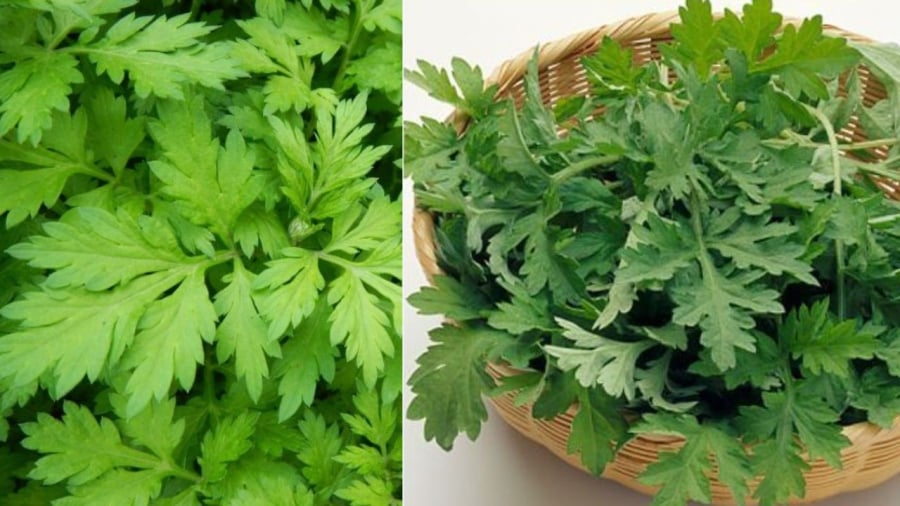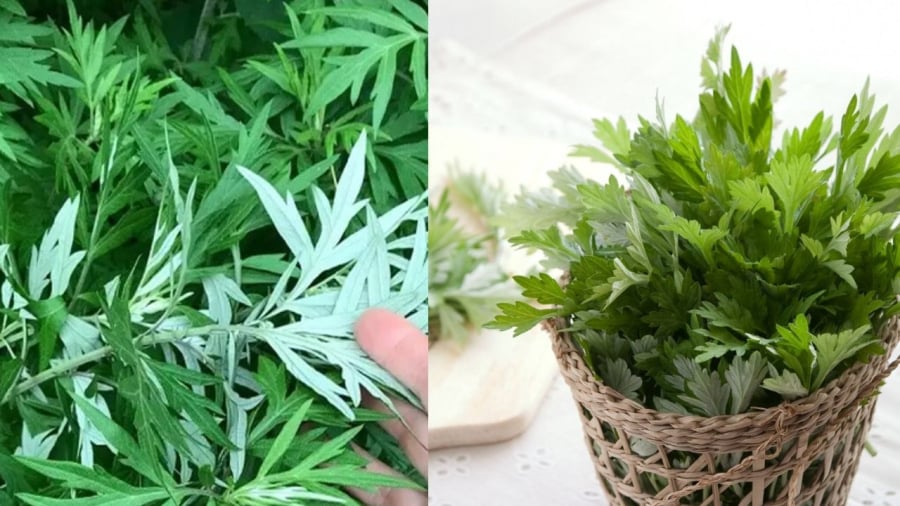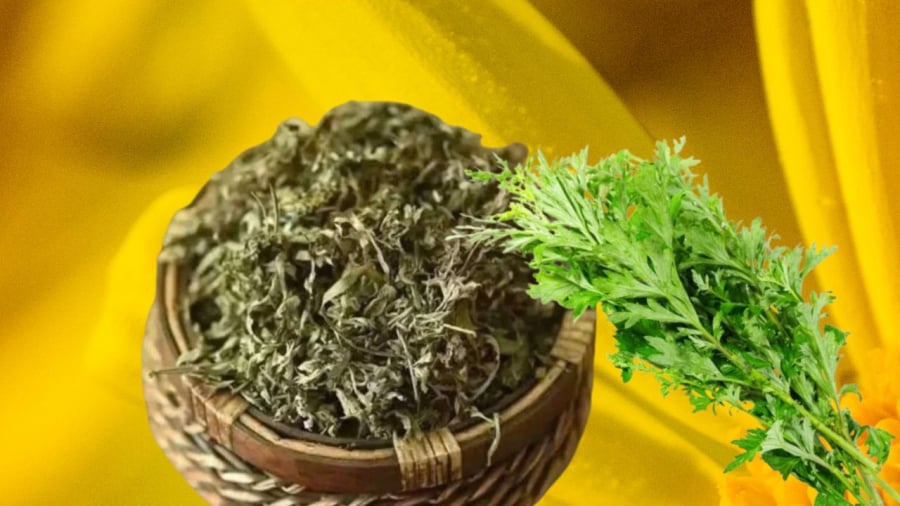Artemisia vulgaris, commonly known as mugwort, is a humble herb that packs a punch when it comes to its health benefits, culinary uses, and even feng shui significance. While it has a bitter taste at first, it leaves a sweet and refreshing aftertaste, especially when chewed slowly. Mugwort is a staple ingredient in traditional Vietnamese cuisine and is also revered as a “precious herb” in traditional medicine and feng shui, adopted by many families.
Mugwort: A Folk Medicine in Every Meal
Vietnamese have long utilized mugwort in their cooking by combining it with other ingredients such as chicken eggs, silkie chicken, fish, and lean meat. In traditional Oriental medicine, mugwort is believed to have a warming nature and a bitter taste, making it beneficial for blood enrichment, calming the mind, pain relief, improving blood circulation, and soothing the nerves.

Popular dishes such as steamed egg with mugwort, silkie chicken soup with mugwort, and fish porridge with mugwort are often used to alleviate headaches, body aches, irregular menstruation, colds, and prolonged fatigue. Mugwort is also employed in steam therapy to relieve colds, dispel coldness from the body, and induce a sense of tranquility and lightness.
Mugwort’s Feng Shui Significance: Protection, Exorcism, and Peace
Beyond its nutritional and medicinal value, mugwort holds a special place in feng shui. In folk belief, it is considered a purely yang plant, imbued with strong yang energy, capable of exorcizing evil spirits and dispelling negative energies surrounding the home.
Traditionally, mugwort plants were grown in front of houses, around the premises, or in gardens to safeguard the residents from negative energies. Dried mugwort bundles were hung at the entrance or burned during special occasions like New Year’s Eve and full moon days, serving as a powerful way to ward off evil spirits and maintain good fortune for the family.

The essential oil derived from mugwort, when burned, emits a distinctive aroma that is not only pleasant but also possesses antibacterial and air-purifying properties. Consequently, many individuals use mugwort-infused water for cleaning their homes, steaming rooms, or bathing, believing that it will ward off bad luck and purify their bodies and living spaces energetically.
The Spiritual Applications of Mugwort
In spiritual practices, mugwort is regarded as a natural talisman. It is used to repel mosquitoes and insects, as well as to ward off misfortune. In the past, dried mugwort leaves were employed for divination and predicting one’s destiny, or they were bundled together and worn as amulets for protection.
In some rural areas, when someone feels weak, exhausted, or beleaguered by bad luck, mugwort-infused water is used for steam baths or bathing, believed to provide relaxation and spiritual cleansing.
Growing Mugwort at Home
Mugwort is easy to cultivate and care for, and it thrives in Vietnam’s climatic conditions. It grows vigorously in spring and prefers sunlight, making it suitable for planting in front of houses, on patios, in gardens, or even in balcony pots.
You can propagate mugwort from seedlings, cuttings, or seeds. The most common method is cuttings, where a healthy branch is simply inserted into moist soil for successful growth.

Some considerations for growing mugwort:
- Light: Mugwort thrives in sunlight and requires at least 5 hours of sunlight daily for optimal photosynthesis.
- Watering: Water twice a day (morning and evening) when first planted. Once the plant is established, reduce watering as it is drought-tolerant.
- Fertilizer: Avoid over-fertilization. Mugwort is resilient and naturally resistant to pests and diseases.
- Planting location: It can be grown in pots, plastic tubs, or directly in the ground.
Having mugwort in your garden provides you with a fresh supply of this versatile herb for cooking nutritious meals and accessing its medicinal and feng shui benefits. Mugwort is a humble herb with profound effects on health, cuisine, and spiritual practices, attracting positive energy and warding off negative influences.
By growing a patch of mugwort in front of your home, you not only gain easy access to a valuable ingredient for wholesome dishes but also invite positive energy and safeguard your family’s well-being and good fortune.
For reference purposes only


































